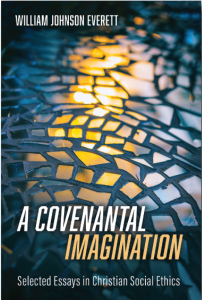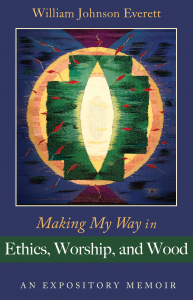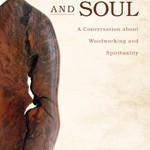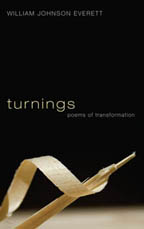It’s Lent again. It’s the season of the Christian year looking for a suitable practice beyond Mardi Gras and ashes. Do we give something up that’s “bad” for us? Do we take on a service project? Do we pray more? Study more? Our church puts out a booklet of brief meditations by our members that everyone is asked to read, providing something common to think and talk about for forty days that is not consumed by the daily deluge of media incitements to groan, purchase, desire, or flee.
When I was asked to contribute something this year, I was given the Scripture passage in St. Paul’s letter to the Galatians, chapter two, verses 15-21. Here’s today’s academic note: Galatia was a region in modern Turkey named for the Gauls that the Romans brought there as soldiers when they took over. I couldn’t fit that in my little meditation because they told me I had 500 words or less. It was the passage that turned around the life of Martin Luther in the early sixteenth century, igniting the Protestant Reformation. I had been over this ground before, but not in 500 words. Here’s some of what I said:
We know that a person is justified not by the works of the law but through faith in Jesus Christ.” This simple sentence turned Martin Luther’s life around and began the Reformation of the 16th century. In his time it meant the overturning of the monastic disciplines of penitence and good works, the end of a celibate clergy, and the radical transformation of a church establishment that had grown rich by extorting money from Christians with the promise of heavenly bliss. But what might it mean for us today in a society that has lost most of the conditions that Luther rebelled against? Yes, many of us are still trapped in a religion based on rigid rules and doing good things in this life in exchange for an eternal life of blessedness. This message is still a liberating one where Christian faith has been reduced to obeying the law, doing good works, being nice, and upholding community life, even when our hearts are mired in fear, anxiety, and bitterness.
Even if we feel liberated from this strait-jacket of moral self-concern, we can see that there are other “works of the law” that seek to command our inner souls: the feverish idolatry of economic growth and its accompanying ecological destruction, the anxiety of trying to be famous in a celebrity culture, the endless temptation to seek security through violence in response to violence, and the daily struggle to live up to the standards of others. Many of us are crushed by the demand to live up to some false ideal of “womanhood” or “manhood.” Many of us cannot buy the things that can tell the world we are OK. We all can name the “works” through which we seek to justify and secure our existence, even as they cannot heal the deep alienation and anxiety within us.
That’s not all I wrote, but these thoughts have kept reverberating in my noggin ever since. Through conversations with family, friends, and myself I thought of how much we are struggling between moral exhortations to do the right thing and our soul’s inner need for confirmation beyond moral perfection and for expressions of our hearts beyond mere obedience. Some of us struggle with obsessive self-demands to be perfect in every way, controlling our anxiety with rituals that diminish and enslave us. Others live in constant fear that such an imperfect world will collapse around us in an apocalypse. Others are paralyzed by the enormity of the moral crises of ecological destruction and mental illness and addiction. Still others are driven to deception and violence to bring in a lost Eden or a promised land.
The very good that we would do (and ought to do!) becomes the source of the fear and anxiety that enslaves and destroys our sense of worth as human beings. The prophets of Goodness, including the ones in the pulpits, become the bearers of our psychic death. But not only our psychic death: In our frantic desire to do good, we fail to realize that our own well-intentioned acts can yield destructive consequences.
Once these realizations pile on, I start really living in Paul’s dilemma. But Paul experienced release from this prison of anxiety. In his experience, he simply gave up, dying into the life beyond death he experienced in being blinded by the light of what he called the resurrected Christ and being resurrected by living into this new life, with its vision of loving grace. While this new life was still “in the flesh,” he wrote “I live by faith in the Son of God, who loved me and gave himself for me.” In the deeply frightening act of letting go, Paul is captured and upheld by the underlying love of God—the Creator and also the Redeemer of all creation.
All this has been rumbling around in me, trying to slough off the barnacles of two thousand years of pious verbiage and open the kernel of Wisdom here. It is not just a matter of finding some practice that can alleviate or shield us from the pain inherent in the gap between our world and a “perfect world,” whether it is meditation, diet, or massage. It is in finding within the power of forgiving love the budding of a new way of living. For Paul it was simply to feel the “love of God.” The life of gratitude, of love, and dignity and power that confirmed his soul could now be the lattice of a new ethic, a new way of life that arises from loving embrace of the Giver of Life rather than fear of failing to do the right thing.
Well, it was radical in Paul’s day, radical in Luther’s, and equally radical in our own. As we are crushed in so many ways beneath the enormity of moral failure in our world, it still seeks to present itself as the “Way” into a life beyond the deaths we fear. Well, in Paul’s day they called it simply “the Way,” sort of a Tao of new life. This may not have helped you take another step, but that’s the one I’ve been thinking about. Maybe I’ll even take a few more baby steps. Let me know about yours. I’ve included a mosaic Sylvia put together out of broken beer bottles as an image to take with you.








 Red Clay, Blood River
Red Clay, Blood River
Thanks, Boyd and Sara! Two Buddhist comments. Hmmm. I just read James Howell’s article, “Immanuel is the Agenda,” about Sam Wells’s recent book. A Nazareth Manifesto: Being with God, in the February 17 Christian Century, which echoes your comments.
Let’s continue the conversation…
Bill
Bill, well said! I am reminded of Sam Well’s answer to the man who asked him how he defined “salvation.” Sam answered that is the ability to be fully present to those around you at any moment (I am paraphrasing it and you may remember it differently!). The question we always need to ask ourselves, and Paul is dealing with it, is whether we are fully present in the acts of goodness we try to give to others, and whether we are allowing God to be fully present in the gift of love and grace we are offered. Anything–remorse for the past, fear of the future, futile grasping at “doing good” simply because it is required of us–that keeps us from being fully present is to be given up. So there is a lot of “letting go” (or as the Buddhists say, “emptying the vessel”) involved in the freedom of grace.
Wow, the first Lenten message that truly resonates for me! I especially appreciate the second paragraph of the excerpt, Bill, about “other works of the law” — sounds downright buddhist :-). Also the last two paragraphs. The Way, indeed.